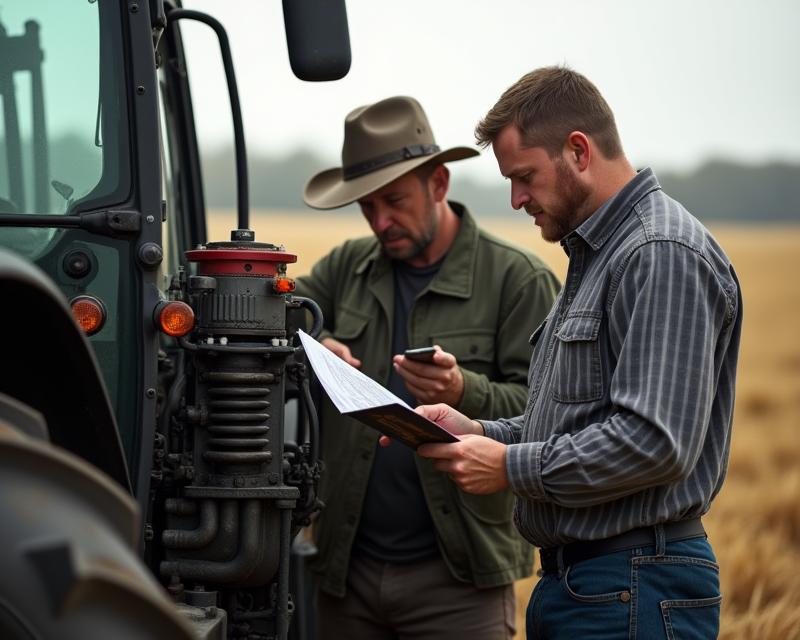Hydraulic Systems: Keeping Your Farm Equipment Running Smoothly
Publish in Farm Business el 21/07/2025 00:54
Hydraulic Systems: Keeping Your Farm Equipment Running Smoothly
Hydraulic systems are the unsung heroes of modern farming! They power a huge range of equipment, from tractors and harvesters to loaders and sprayers. Understanding how these systems work and how to maintain them can save you time, money, and prevent costly breakdowns. This guide breaks down the basics of hydraulic systems in agricultural equipment, offering simple tips for keeping everything running smoothly.

How Do Hydraulic Systems Work?
At its core, a hydraulic system uses pressurized fluid (usually oil) to transmit power. It works on Pascal's Principle: pressure applied to a fluid in a closed container is transmitted equally in all directions. Think of it like a water hose – squeezing the hose creates pressure that pushes the water out. In a hydraulic system, pumps create the pressure, which then moves through hoses and cylinders. These cylinders convert the hydraulic pressure into linear motion, powering things like lifting implements, steering, and controlling hydraulic valves.
Common Components & Maintenance
Let's look at some key parts of a hydraulic system and how to maintain them. First, you have the pump, which generates the pressure. Regularly check the pump's oil level and look for any leaks. Next, there are the hoses – inspect them frequently for cracks, bulges, or signs of wear. A damaged hose can lead to a serious leak and system failure. Hydraulic cylinders are the workhorses, converting pressure into motion. Check for leaks around the seals and ensure they move smoothly. Finally, the hydraulic reservoir holds the fluid. This is where regular fluid checks and changes are crucial. Dirty or low fluid can damage the pump and other components. Follow your equipment manufacturer's recommendations for fluid type and change intervals.
Simple Checks You Can Do
You don't need to be a hydraulics expert to keep your equipment in good shape. Here are a few simple checks you can do regularly:
- Check fluid levels daily.
- Inspect hoses for damage weekly.
- Look for leaks after each use.
- Listen for unusual noises – these could indicate a problem.
- Clean the reservoir cap regularly.
If you notice any problems, don't hesitate to consult a qualified mechanic. Ignoring small issues can lead to major repairs down the road. Proper maintenance of your hydraulic system will ensure your equipment continues to perform reliably, helping you get the job done efficiently and effectively. A little preventative maintenance goes a long way!





